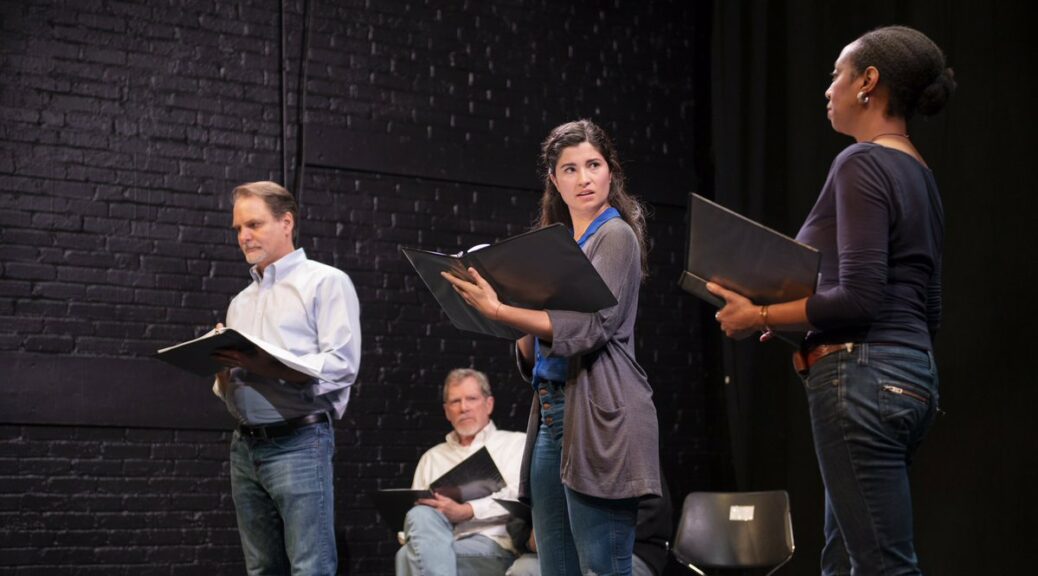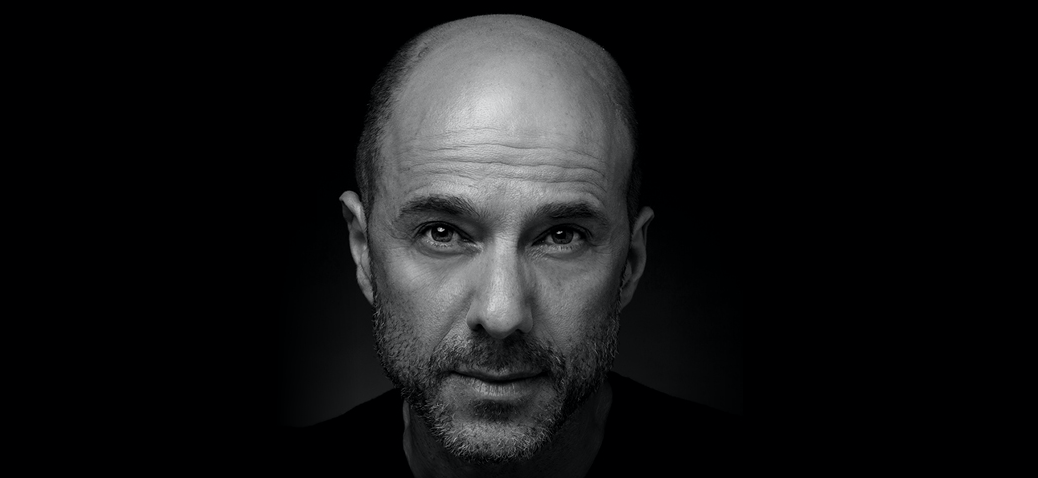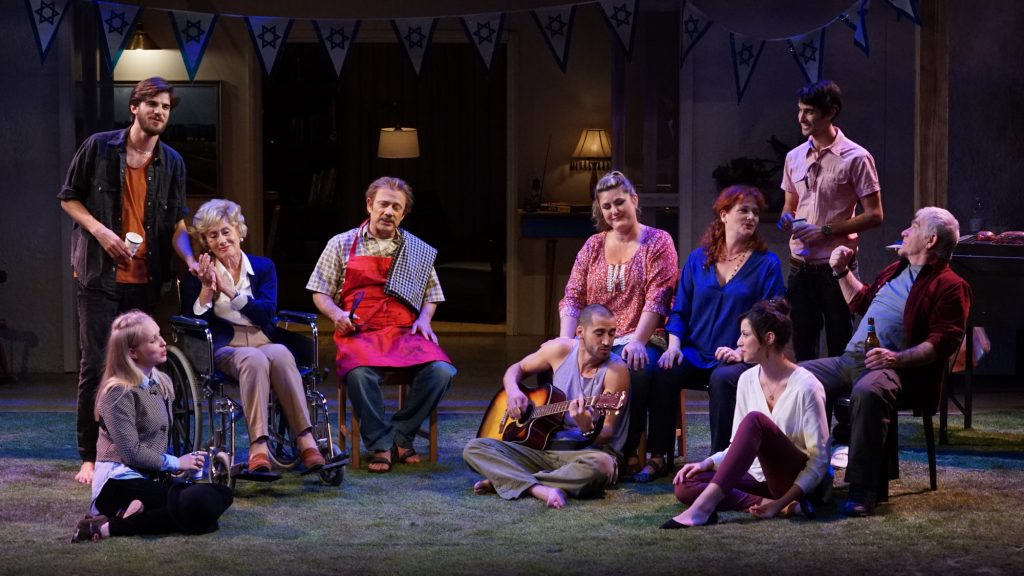By: Katherine Gianni
On Saturday, March 30, Boston Playwrights’ Theatre welcomed Israeli Stage founder and creative director Guy Ben-Aharon, Israeli actor Dror Keren, and a group of eager theatergoers for the world premiere staged reading of Mr. Keren’s gripping family drama, What Life Wants.
“What you’ll be seeing is the culmination of a two week long process,” Mr. Ben-Aharon explained to the sold-out crowd moments before the 4:00 p.m. show time. He, Mr. Keren, and a cohort of seven American actors had been rehearsing the show from March 17-31 as part of a two week residency at the Elie Wiesel Center for Jewish Studies, made possible by a grant from the Jewish Cultural Endowment.
“We’ve been workshopping this script every day. In fact, the last scene was added today, just for you,” Mr. Ben-Aharon said to applause.
What Life Wants navigates the complications of parenthood through the lens of a devoted father and husband, who grew up without a comparable father-figure. In the wake of his mother’s death, Dudi (Tom Kee), is reunited with the man who walked out on them, a man who he never refers to as dad, only coldly by his first and last name, Benjamin Nino (Patrick Shea).
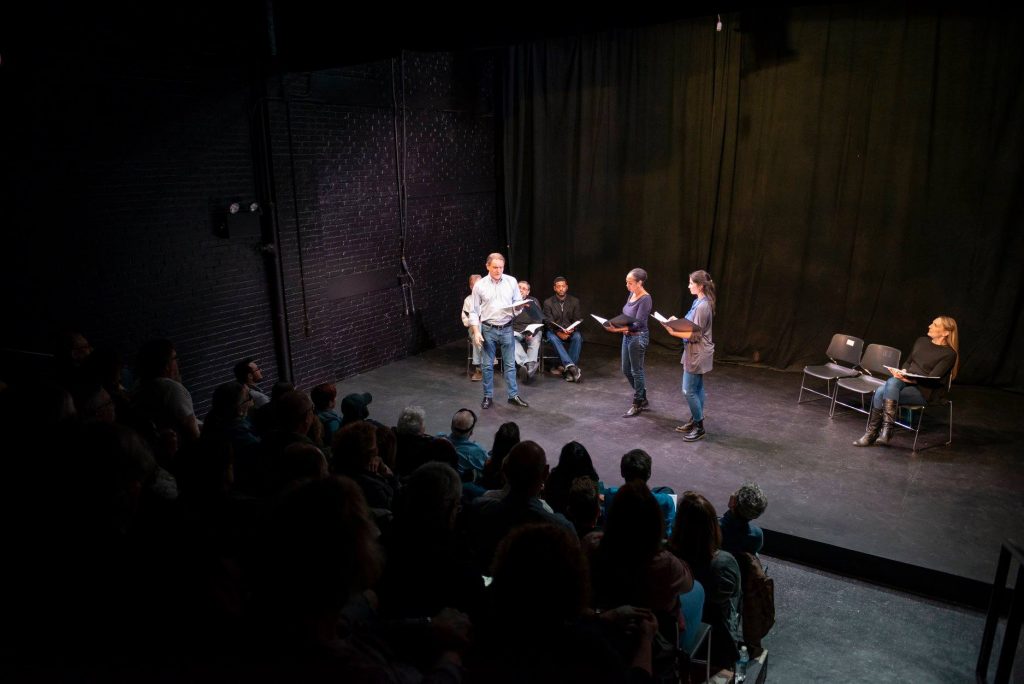
Dudi and his twin siblings Miri (Deborah Martin) and Amos (Kadahj Bennett) are not primarily concerned about making up for lost time with Mr. Nino. Instead, the trio questions his motives for returning, while simultaneously reliving the details of their painful childhood.
Their ongoing conversations, quips, and conclusions about the elusive Benjamin Nino highlight the focal point of the show: you can’t always escape your past. But you can learn from it.
Hardened by unresolved feelings of abandonment, Dudi is unsurprisingly austere to his father in the beginning of the show. He chastises him for leaving the family, for his lack of morality, and for his seemingly aloof attitude.
Benjamin retaliates, in a stern parental reprimand, that Dudi’s perception of both his character and his actions are far from reality. We watch both men’s exteriors begin to soften as they share bits and pieces of the years gone by and the complex flood of emotions of wanting to be there for one another, but not quite knowing how.
This conundrum is also exhibited on-stage through their body language. The pair is always seen standing across from one another, their feet planted firmly in a pseudo face-off. There are no hugs or handshakes ever exchanged, as if an invisible barrier keeps the two far enough apart to never truly be able to reach out.
Dudi, however, is the only family member that interacts with Benjamin in person, in part because he was the only one his estranged father contacted directly. A twist towards the end of the performance reveals why such is the case. Dudi’s daughter, Tali (Maya Tripathy), frequently asks about her grandfather, her adolescent curiosity insistent on piecing together her family’s past. Dudi’s wife and Tali’s mother, Anat (Jackie Davis), is cautious about asking too many questions of their interactions, knowing how contentious the relationship is.
Dudi’s decision to see his father, despite his deep-rooted anger, plays to another crux of the show. Instead of leaving his relationship with Benjamin to fate, he acts on his own free will. In other words, he makes his decisions not by what life wants, but rather, what he wants out of life. Amos and Miri choose also choose the latter, although in a less confrontational way. Their choice of silence, of not engaging or interacting with Benjamin is still a declaration of free will, one that is heard loud and clear by both the audience, and their older brother.
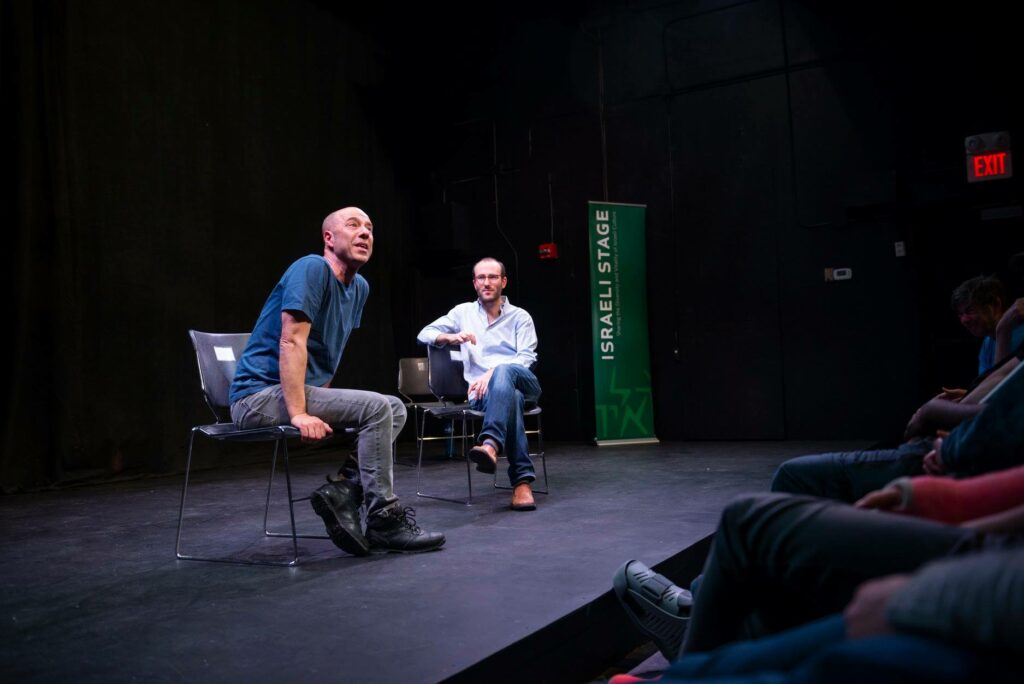
A brief question and answer session with Mr. Keren and Mr. Ben-Aharon followed the reading. Many inquiries from the audience focused on Mr. Keren’s inspiration for the script and the many themes and motifs within the plotline.
“Parenthood is a never-ending lesson,” Mr. Keren said conclusively. “The main battles people face are within the walls of their homes. I’m happy I was able to dig deeper into these characters to show that.”
“Here at the Elie Wiesel Center we are very eager to foster a relationship between the humanities and the arts,” said EWCJS Director Michael Zank following his viewing of the 8:00 p.m. reading. “Israeli Stage has enriched our conversations through plays; conversations that we have in our classes and through writings coming out of Israel.”
For more information on Israeli Stage visit https://israelistage.com.

